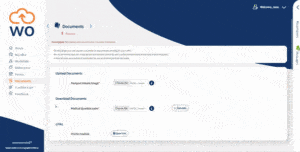Nearly half of all UK businesses fear that Brexit uncertainties will harm their ability to meet future hiring demands.
This was a key finding of a recent study by the Recruitment and Employment Confederation (REC), with fears found to be highest amongst the engineering and health and social care sectors.
The concerns are a result of the ongoing recruitment uncertainties caused by Brexit and the impact of a steadily shrinking employment pool as the number of overseas workers continues to dwindle.
It’s creating a highly competitive environment in which hiring teams are struggling to fill positions. It means having to rethink the tools and strategies that are used to handle the hiring process.
Highlighting weakness
The pressure on HR teams has helped to expose some of the flaws with traditional ways of managing the hiring process. One area, in particular, that’s a cause for concern is become is employee onboarding.
Onboarding starts the moment a successful candidate is chosen and it covers all of the HR tasks and processes required to get them started, including contract signing, reference checks, welcome packs and first-day admin.
It’s a task that two-thirds (68 percent) of UK companies currently handle using traditional communication methods – posted documents, emails and phone calls. It creates a slow, inefficient process and a frustrating experience for new hires – often taking weeks to complete.
To improve the handling of this tricky phase of the hiring cycle, more organisations have started to move to cloud-based onboarding solutions – transforming the way hiring teams are able to schedule, manage and track the process.
Benefits of paperless process
Webonboarding combines real-time data, automated processing and digital document signing to create a completely paperless process – allowing onboarding times to be reduced from weeks to days.
It also provides hiring teams with a GDPR (General Data Protection Regulation) friendly level of control over employee data, greatly reducing the risks caused by human errors, inaccuracies and data duplication.
Alongside speed and efficiency, a cloud-based solution can boost the experience from the perspective of a new starter. It allows HR to craft a simple and engaging onboarding workflow which creates positive first impressions for new employees.
By improving this onboarding experience, a hiring team is able to reduce the problem of dropouts – when successful candidates opt out of the process because of delays, frustrations or accepting alternate job offers.
Health and social care challenge
Having an efficient onboarding process is especially important for health and social care organisations as this is one of the sectors hit hardest by the recruitment pressures caused by Brexit.
A 2018 study by the Nuffield Trust predicts a 70,000 shortfall of care workers within England by the year 2023. Likewise, the RET survey found that more than a third (35 percent) of organisations expressed concern about the future availability of employees.
Increasingly, health and social care organisations are having to compete against the service and retail sectors to attract low-skilled staff. Onboarding poses some particular challenges because of the need to include stringent checks on incoming health and care workers.
So while Brexit continues to create such volatile recruitment conditions, it’s increasingly important for hiring teams to be equipped with the kind of management tools required to stay competitive in today’s hiring environment.




